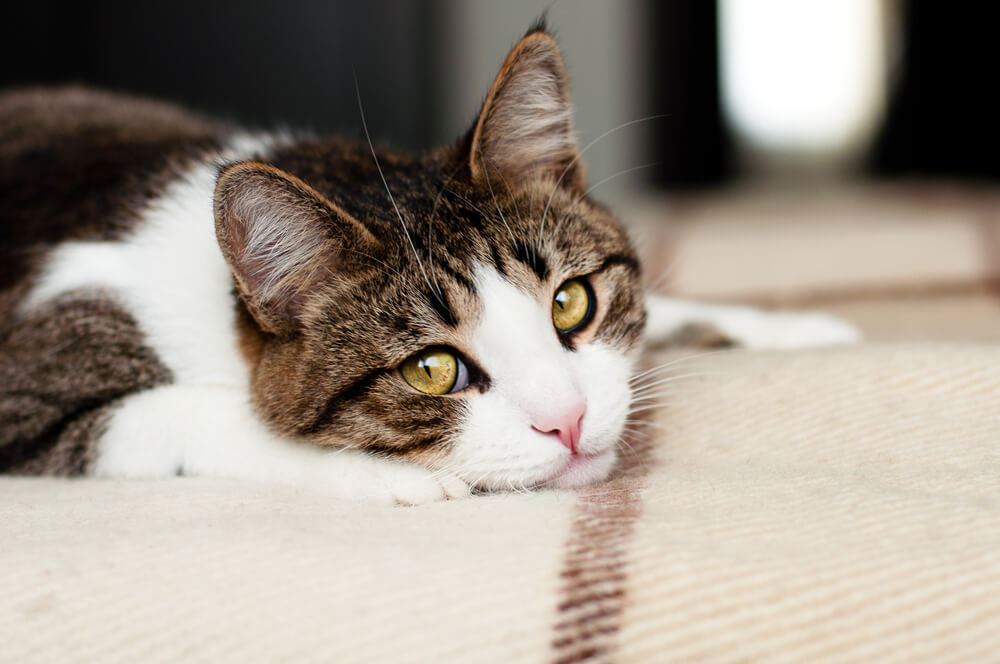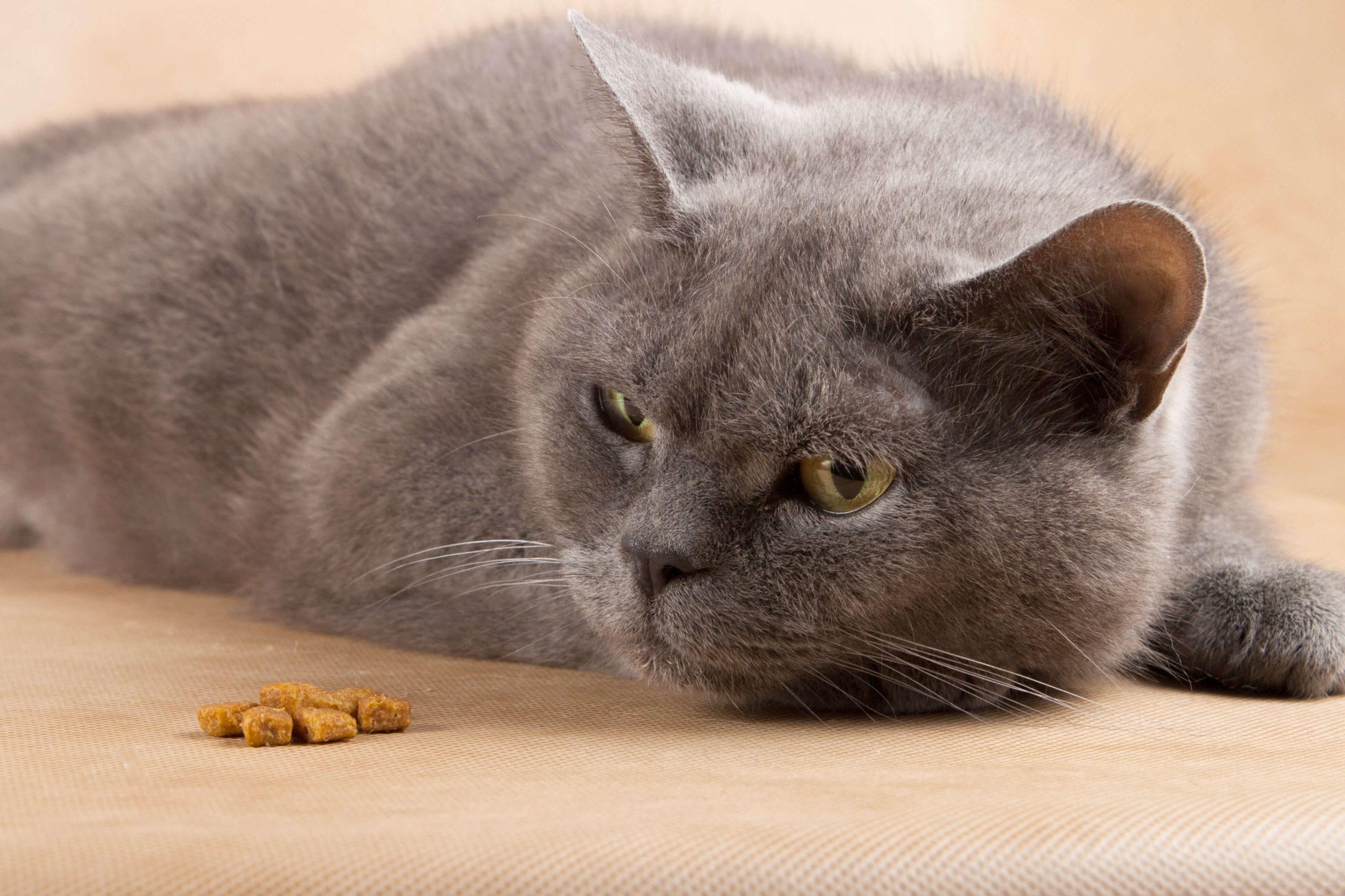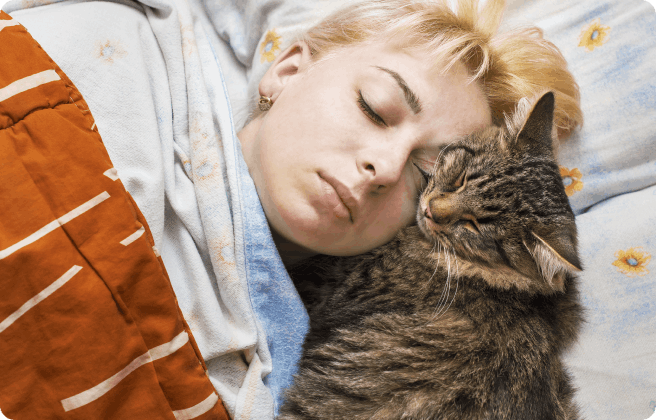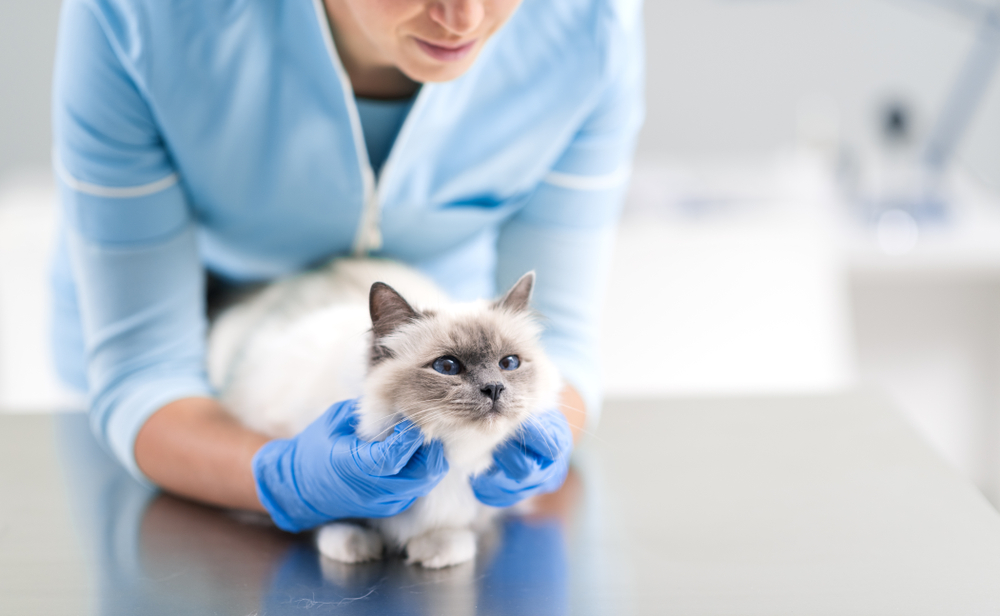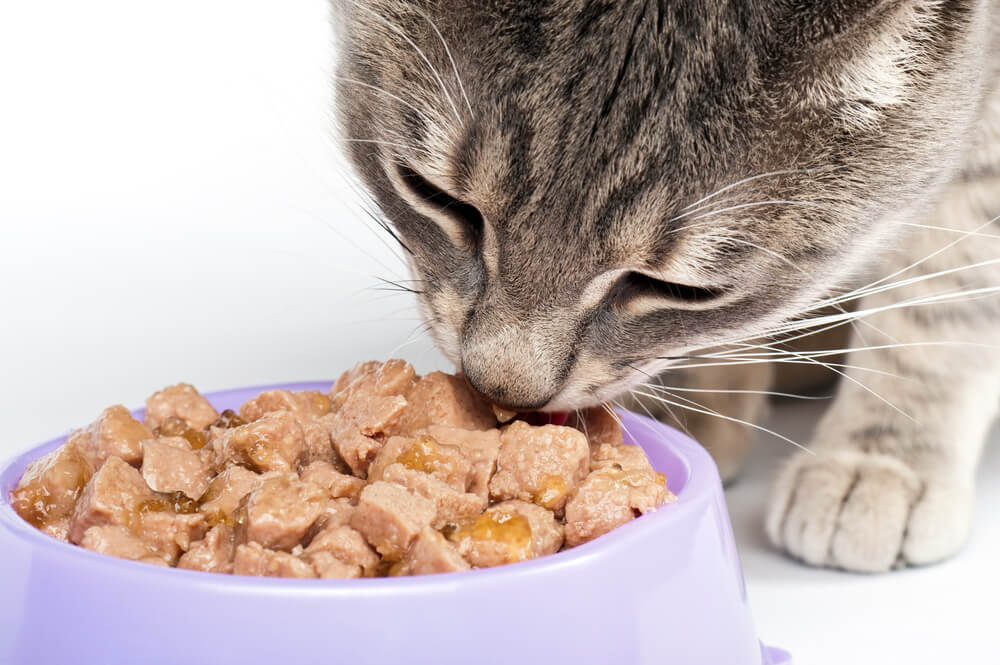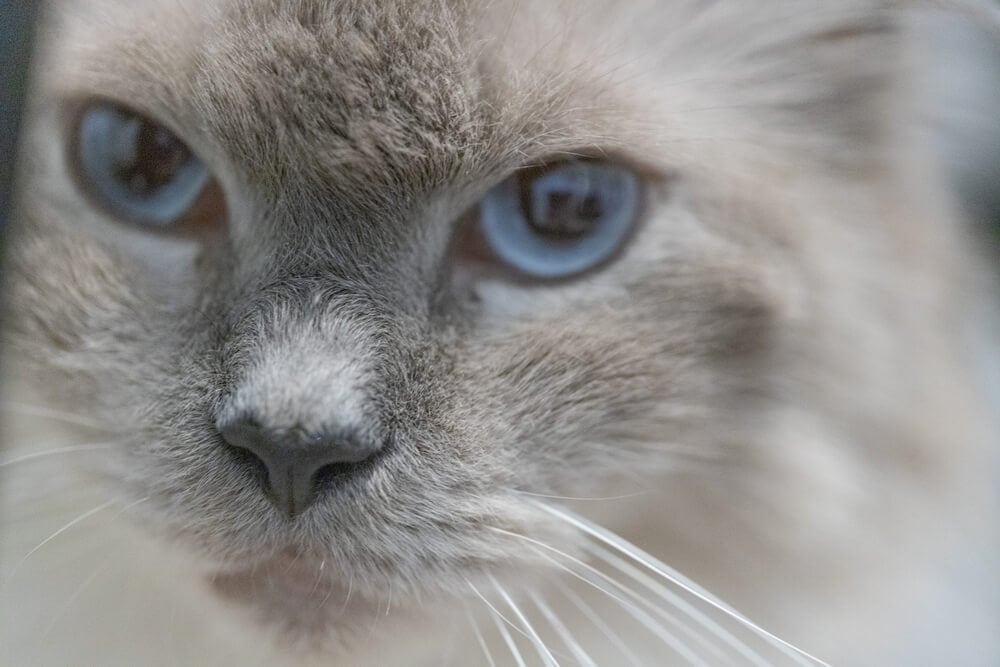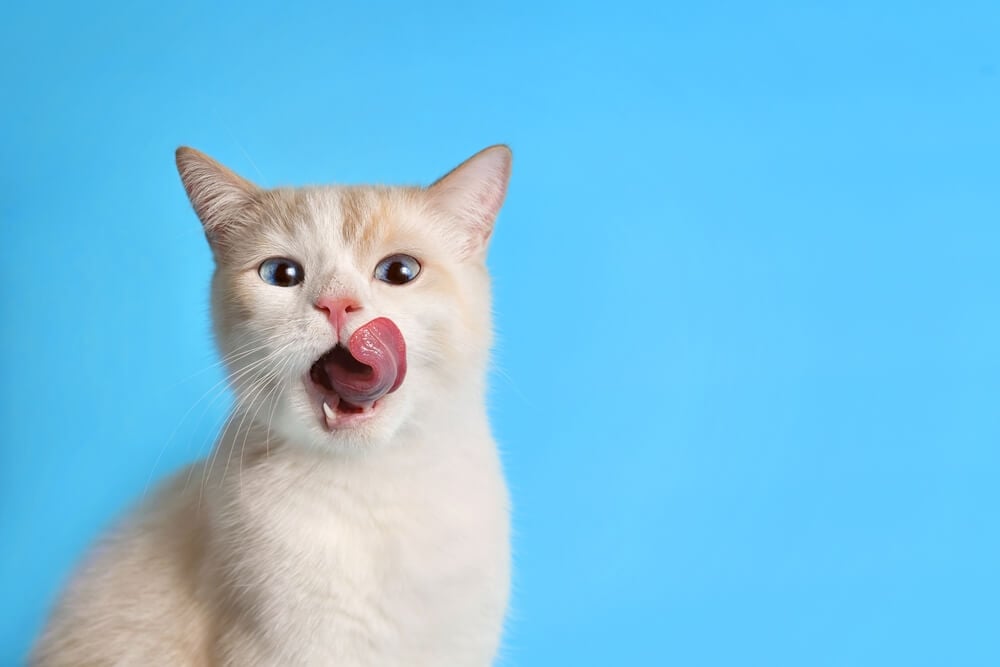
As a caring pet parent, you do everything within your power to ensure your feline friend gets the very best from what they eat.
How do we know this? Because you’re visiting Cat Food Advisor, and you’ve chosen to read this article on whether diet can impact a cat’s behavior.
Perhaps your cat is playing up, causing issues, or their behavior has changed and you’re trying to pinpoint the cause. Could it be linked to what you’re feeding them? Find out more below.
During development
Kittens need protein. It’s not just a bonus extra if they can get it, it’s an essential building block to their development, as protein contains a pair of amino acids crucial to a cat’s growth: arginine and taurine. If they don’t get enough you may notice them playing up, eating inedible things such as fabric, or having limited self-control.
Research on feline behavior has found that kittens can display signs of Hyperesthesia Syndrome, which has similar symptoms to a lack of protein during the early stages post-birth. These symptoms can include agitation, nervousness and constant movement, which, as you’ll no doubt be aware, accurately describes most kittens’ behavior, so it can be hard to tell the root cause and whether diet is playing a role.
Hyperesthesia Syndrome is caused when kittens become separated from their mother at around five or six weeks of age. This is a key time for maternal regulation, when the new arrivals learn self-control and how to eat until they are full, rather than consuming everything and anything without ceasing until they vomit.
The lack of protein in kittens, though, can cause lifelong disorders, usually with a poor prognosis, so ensuring your kitten receives enough protein in their diet from their early stages is crucial.
Aim for at least 30%-40% protein in their diet as kittens. The source of this protein should mainly be animal-based, including chicken, beef, lamb, turkey and fish, but a proportion can be plant-based protein, too.
Aggressiveness
If your cat’s showing signs of aggression, have you considered it might be linked to their diet? In particular, one way that feeding your cat can result in aggressiveness is by changing their feeding times, or not feeding them often enough. After all, many of us pet parents would admit to getting a little ‘hangry’ when we haven’t eaten for a while, so why should cats be any different?
Cats in the wild will eat 10 to 20 small meals a day, essentially constantly snacking like a runner carb-loading for a marathon, so when you change that to three or even two meals a day their appetite, and patience, can be stretched to the limit waiting for the next meal.
If they’re showing aggression, try bringing their mealtimes forward by an hour to help appease their hunger. Another tip is to stimulate their instinct for hunting by hiding tasty snacks around the house or using food puzzles or feeders. Make them work for their food — they’ll enjoy the challenge, they’ll use their brain and senses, and as a result you should see a reduction in aggressive behavior.
Anxiety
Studies have found that a nutrient-rich diet for cats can impact brain activity, and some vets prescribe specific diets for cats to help improve mental health 1 — the act of eating releases neurotransmitters associated with pleasure and calmness, so even just by munching on dinner your cat may become calmer.
Cats with general anxiety or separation anxiety have also seen positive outcomes from using food toys or puzzles, distracting the cat from any anxieties they might be feeling to focus on solving the problem to get the food.
Lethargy
Another way your cat’s diet can affect its behavior is that overfeeding them can lead to obesity and lethargy. If a cat’s overweight, it also puts pressure on their bones and joints, which can make moving more difficult, resulting in increased tiredness.
Ensuring your cat receives a balanced diet low in calories will help if your cat is overweight — seek advice from your veterinary surgeon if you’re unsure, but once your cat begins to lose weight you should see them become less lethargic and more mobile and eager to play.
We uphold the highest editorial standards when creating the authoritative content pet parents rely on and trust.
Every piece of clinical content on the Cat Food Advisor is reviewed by our certified Veterinary Advisory Board, which consists of licensed veterinarians and medically certified specialists.
Our reviews are completely independent; we are not paid by any pet food company to promote their products favorably. We do not accept money, gifts, samples or other incentives in exchange for special consideration. For more information see our Disclaimer & Disclosure page.




